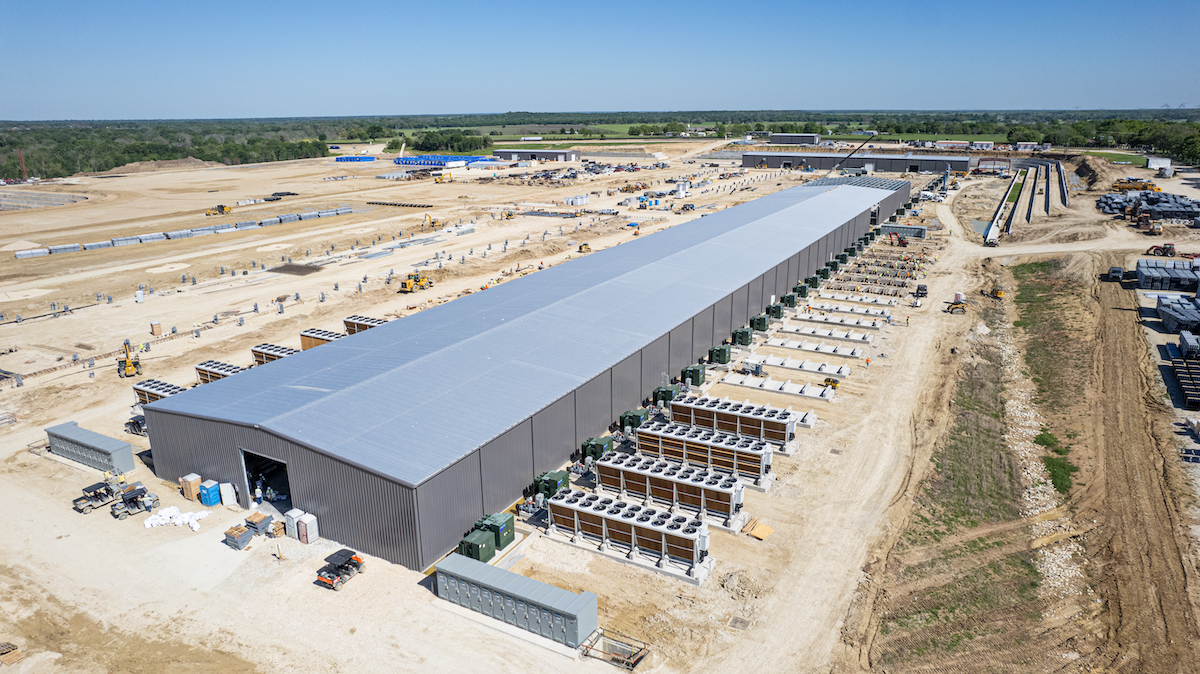Reform UK And The Future Of British Farming: A Trustworthiness Assessment

Table of Contents
Reform UK's Stated Policies on British Farming
Reform UK's vision for British farming is predicated on a departure from the current agricultural support system, advocating for a more market-driven approach. Understanding their detailed policy proposals is key to evaluating their trustworthiness.
Specific Policy Proposals
Reform UK’s proposals for British agriculture are often presented as a radical shift from existing policies. While specific details are sometimes lacking in easily accessible official documentation, their public statements and pronouncements suggest several key policy directions:
- Reduced reliance on EU-style subsidies: Reform UK champions a significant reduction, or even complete removal, of direct payments to farmers, favoring instead a system based on market forces and private investment.
- Focus on free trade agreements: They strongly advocate for a reduction in trade barriers and the negotiation of numerous free trade agreements, potentially impacting the competitiveness of British farmers.
- Easing of environmental regulations: Reform UK expresses concerns about the perceived burdens of environmental regulations, suggesting a potential relaxation of certain standards.
- Increased support for smaller, independent farms: While advocating for a market-driven approach, they claim to prioritize support for smaller, traditional farming operations.
Analysis: The potential impact of these proposals is multifaceted. Reduced subsidies could lead to financial hardship for many farmers, particularly smaller businesses. Free trade agreements may increase competition but could also open up new market opportunities. Easing environmental regulations could boost productivity in the short term but potentially harm the environment long-term. The purported support for smaller farms needs further clarification on how this will be practically implemented.
Alignment with Farmer Needs
The alignment of Reform UK's policies with the diverse needs of British farmers is questionable. The UK boasts a wide range of farming enterprises, from large-scale arable operations to small-scale livestock farms, and regional variations significantly influence farming practices and profitability.
- Large farms: Large-scale farms may benefit from free trade and reduced regulation, while facing challenges from decreased subsidies.
- Small farms: Small-scale farms, often reliant on subsidies, may struggle to adapt to a market-driven system.
- Regional variations: The impact of Reform UK's policies will vary significantly across regions, with some areas benefiting more than others.
Analysis: There's limited evidence to suggest Reform UK has adequately consulted with farmers across the entire spectrum of the agricultural sector. Feedback from farmer organizations expressing concerns over potential job losses and reduced food security is prevalent, indicating a significant gap between the party's vision and the practical realities faced by many farmers. Further engagement with farming communities is crucial to assess real-world feasibility and support.
Track Record and Credibility
Assessing the trustworthiness of Reform UK requires examining their past actions and statements related to British agriculture, along with their commitment to transparency and accountability.
Past Actions and Statements
Reform UK's relatively short history limits the extent to which we can assess a long-term track record on agricultural issues. However, analysis of their public statements and actions reveals a consistent theme of deregulation and market liberalization.
- Public statements: They frequently criticize existing agricultural subsidies and regulations, advocating for a more laissez-faire approach.
- Votes and debates (where applicable): Detailed analysis of votes and debates involving Reform UK representatives is needed to further examine their consistency on agricultural matters.
Analysis: The party's consistent advocacy for deregulation and reduced subsidies suggests a predictable policy direction. However, the lack of detailed, evidence-based plans raises concerns about the potential consequences of their proposed reforms. A more robust engagement with the sector is needed to build trust and demonstrate a comprehensive understanding of the challenges faced by British farmers.
Transparency and Accountability
The transparency and accountability of Reform UK's processes regarding agricultural policy remain unclear. Limited public access to detailed policy papers and proposals hampers a thorough assessment.
- Access to information: The availability of detailed policy documents and consultation processes needs improvement.
- Decision-making processes: The internal decision-making processes of the party regarding agricultural policy lack public transparency.
- Mechanisms for public feedback: Opportunities for farmers and the wider public to provide feedback on agricultural policies need to be expanded.
Analysis: Improved transparency is crucial to build trust. The party needs to proactively engage with farmers and stakeholders, publishing detailed proposals and providing opportunities for open dialogue and feedback.
Potential Impacts and Risks
Reform UK's proposed policies carry significant potential impacts and risks across economic and environmental dimensions.
Economic Impacts
The economic consequences of Reform UK's policies on British farming are potentially far-reaching.
- Profitability: Reduced subsidies could significantly impact farm profitability, potentially leading to farm closures and job losses.
- Job creation: The net effect on job creation is uncertain, with potential losses in some areas and gains in others.
- Food prices: Changes in farming practices and production levels could influence food prices, potentially leading to increased costs for consumers.
Analysis: A thorough economic impact assessment, considering regional variations and farm types, is crucial to understand the potential implications. The potential for increased food prices and job losses raises serious concerns.
Environmental Impacts
The environmental consequences of Reform UK's proposals are also a significant concern.
- Land use: Relaxing environmental regulations could lead to changes in land use, potentially impacting biodiversity and habitats.
- Biodiversity: Reduced environmental protections could lead to biodiversity loss.
- Carbon emissions: The impact on carbon emissions is uncertain and requires detailed analysis, potentially showing a negative effect depending on the scale of deregulation.
Analysis: The potential for negative environmental consequences underscores the need for rigorous environmental impact assessments before implementing any policy changes.
Conclusion: Reform UK and the Future of British Farming: A Final Assessment
This assessment of Reform UK's approach to British farming reveals a mixed picture. While their advocacy for a more market-driven approach resonates with some, the lack of detailed policy proposals, limited transparency, and potential negative economic and environmental consequences raise serious concerns. The absence of comprehensive engagement with the farming community also undermines the trustworthiness of their proposed reforms. The potential impact on food security and the livelihoods of many farmers cannot be ignored.
Overall Assessment of Trustworthiness: Based on the evidence presented, the trustworthiness of Reform UK's approach to British farming appears limited. Further detailed policy proposals, transparent consultation processes, and comprehensive impact assessments are crucial before any significant policy changes are implemented.
Call to Action: Understanding the trustworthiness of Reform UK's approach to British farming is crucial for the future of our agricultural sector. Continue your research, engage in informed discussions with farmers and other stakeholders, and make your voice heard in shaping the future of British agriculture. Let's ensure that any policy changes benefit both the environment and the livelihoods of those working in this vital sector.

Featured Posts
-
 Winter Storm Warning Four Or More Inches Of Snow Tuesday Dangerous Cold
May 03, 2025
Winter Storm Warning Four Or More Inches Of Snow Tuesday Dangerous Cold
May 03, 2025 -
 Political Clash Farage And Teaching Union In Heated Exchange Over Far Right Claim
May 03, 2025
Political Clash Farage And Teaching Union In Heated Exchange Over Far Right Claim
May 03, 2025 -
 Dlyl Almshtry Kl Ma Thtaj Merfth Qbl Shrae Blay Styshn 6
May 03, 2025
Dlyl Almshtry Kl Ma Thtaj Merfth Qbl Shrae Blay Styshn 6
May 03, 2025 -
 From Scatological Data To Podcast The Power Of Ai
May 03, 2025
From Scatological Data To Podcast The Power Of Ai
May 03, 2025 -
 Riot Platforms Riot Stock A Deep Dive Into Recent Performance
May 03, 2025
Riot Platforms Riot Stock A Deep Dive Into Recent Performance
May 03, 2025
Latest Posts
-
 Shah Rukh Khans Met Gala Debut A Sabyasachi Spectacle
May 07, 2025
Shah Rukh Khans Met Gala Debut A Sabyasachi Spectacle
May 07, 2025 -
 Mastering Leadership Warren Buffetts Approach To Avoiding Mistakes And Staying Humble
May 07, 2025
Mastering Leadership Warren Buffetts Approach To Avoiding Mistakes And Staying Humble
May 07, 2025 -
 Open Ai Remains Under Nonprofit Control A Deep Dive
May 07, 2025
Open Ai Remains Under Nonprofit Control A Deep Dive
May 07, 2025 -
 Baltimore Ravens Part Ways With Kicker Justin Tucker Analysis And Reactions
May 07, 2025
Baltimore Ravens Part Ways With Kicker Justin Tucker Analysis And Reactions
May 07, 2025 -
 Trumps Impact On Hollywood A Shift In Film Production
May 07, 2025
Trumps Impact On Hollywood A Shift In Film Production
May 07, 2025
